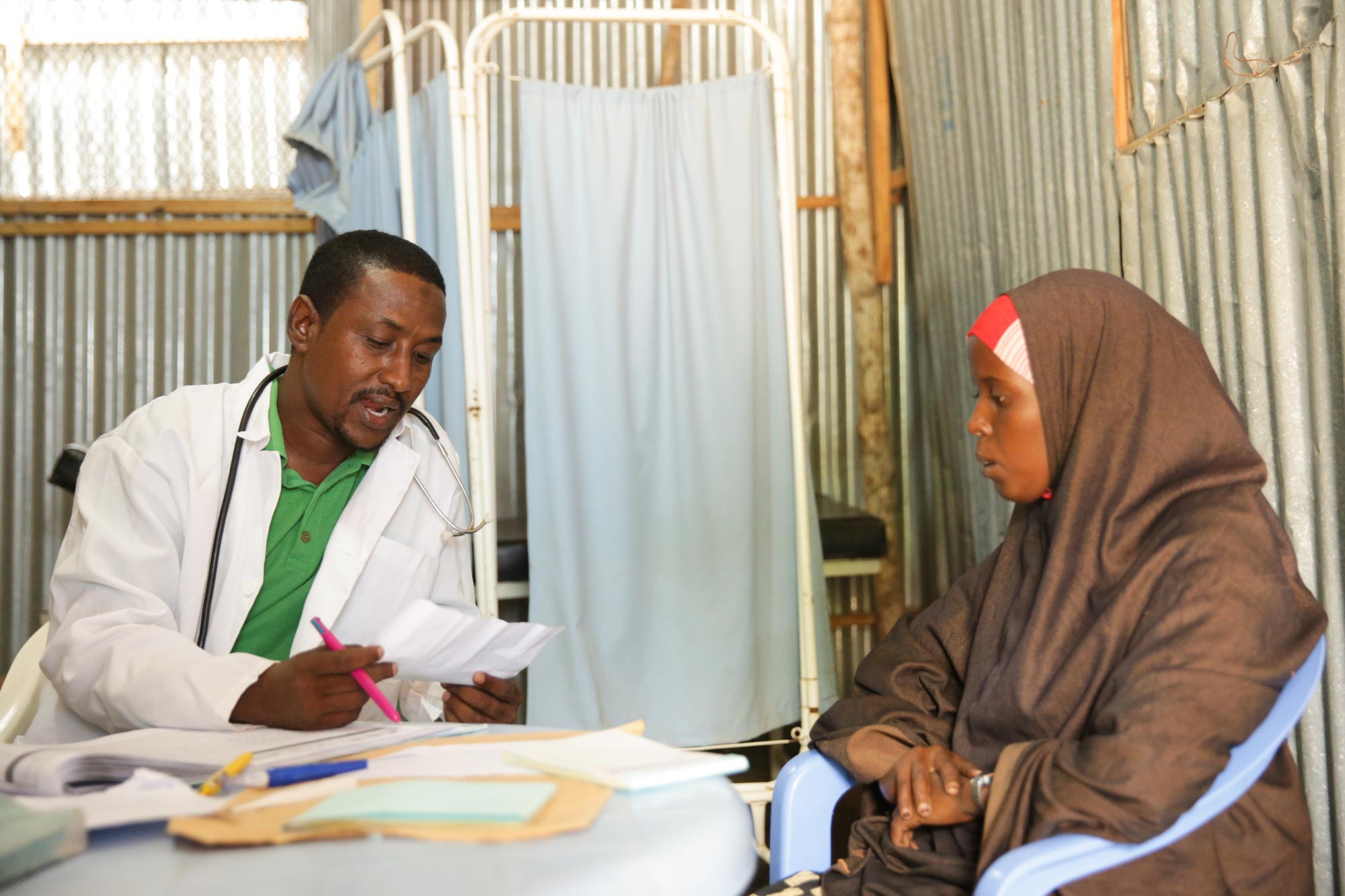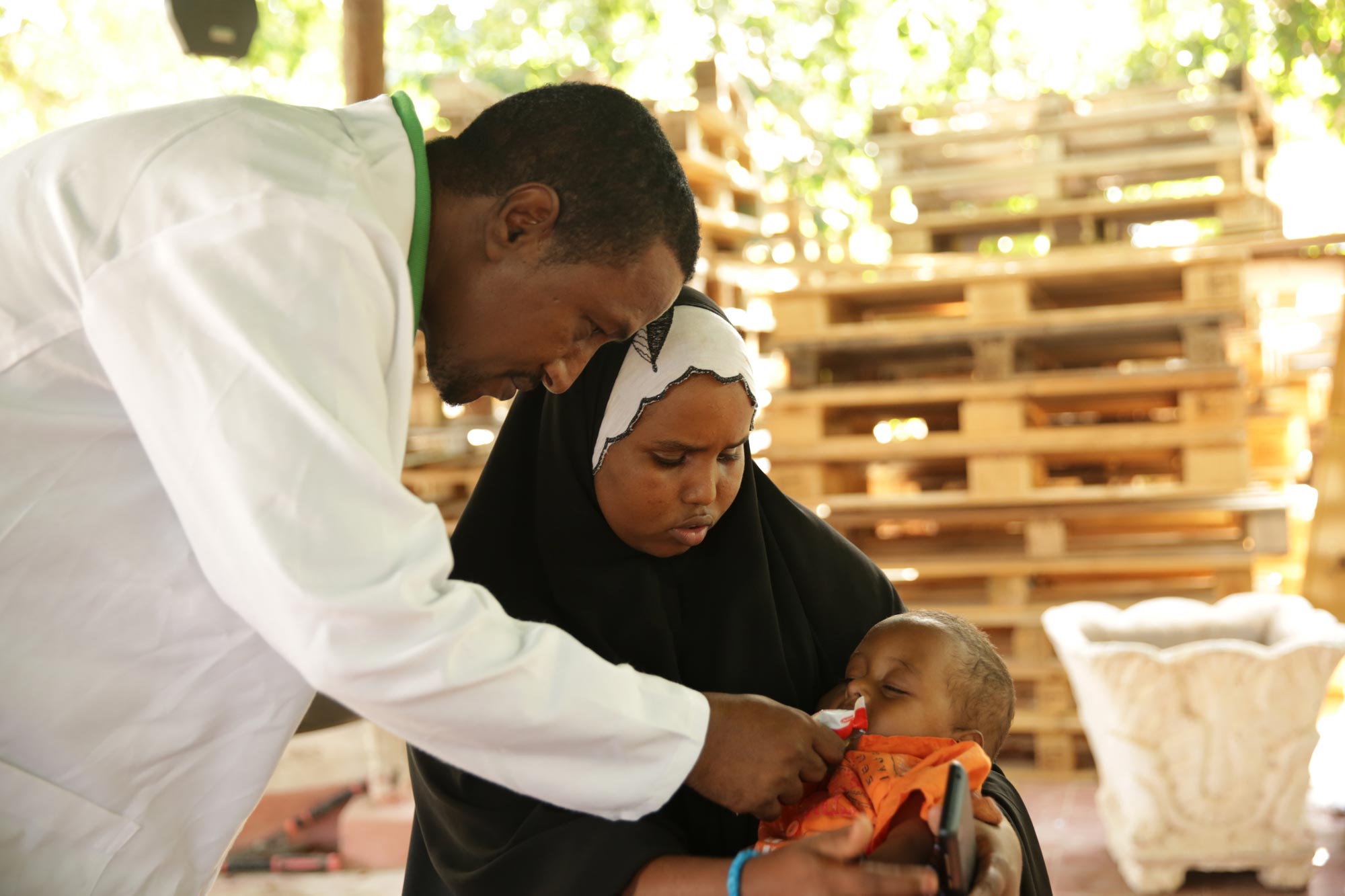For more than 20 years, Abdi* has cared for Somalia’s sick as a nurse with International Medical Corps in Somalia. He started his work with International Medical Corps in 1996. Over the years he has responded to disease outbreaks in three different regions of Somalia and saved countless lives. Today, he sees about 50 patients a day at a clinic that International Medical Corps runs in the Somali capital, Mogadishu.
“Some come to the health facility in severe condition,” Abdi said. “I am always ready to go an extra mile and provide the care they need. I feel good when I see them leave the facility better than they came.”
Abdi’s commitment to his country is needed more than ever: consecutive failed rains, combined with ongoing violence and instability, has left millions of people in Somalia on the brink of famine. With livestock and crops failed, many people, particularly children, have fallen pretty to malnutrition. Outbreaks of measles and acute watery diarrhea (AWD), or cholera, have also flared up across the country.


Despite the threat of famine and disease looming over his country, Abdi has not lost hope and passionately believes that the work he and the International Medical Corps team are doing each day around Somalia is alleviating suffering and saving lives.
“My happiest moment…in responding to the drought in Somalia was when International Medical Corps established a new health center to provide health care to the people in the displacement camps,” he said. “People living in the camps are exposed to contaminated water and food, which easily spreads acute watery diarrhea and cholera.”
“People living in the camps are exposed to contaminated water and food, which easily spreads acute watery diarrhea and cholera.”
The clinics in the displacement camps provide primary health care as well as treatment for malnutrition to families who were forced to abandon their homes and search of humanitarian assistance. Many walk for days with no food or water to reach the camps.
For Abdi, this is exactly where International Medical Corps and First Responders like him should be. “I cannot just sit there and watch my community perish,” he said. “I have to wake up every day and go out to help my people.”
*Name changed to protect identity.
